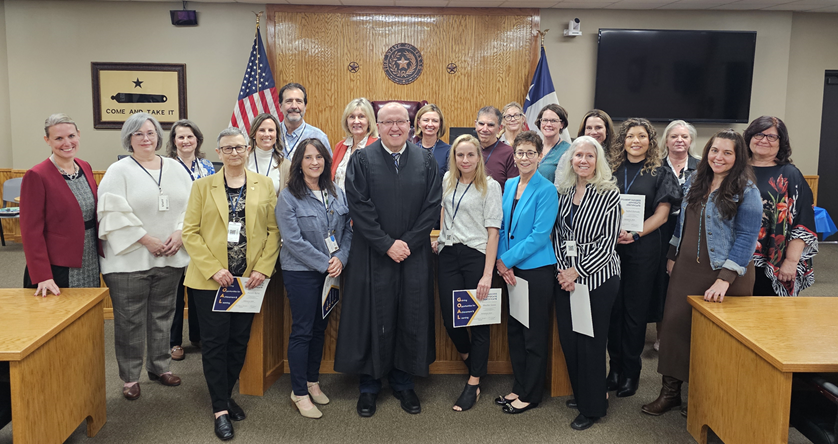Advocate Access
Get In Touch
Child Advocacy

Educational Advocacy
When a youth is struggling with school attendance or participation, a highly trained volunteer is assigned to advocate for the needs of the student in school and in court (if applicable). That volunteer is called a Student Success Advocate, or SSA. Student Success Advocates will get to know the youth, gather information, connect families to community resources, and encourage school engagement and academic participation. The Student Success Advocate builds a collaborative partnership with the student, family, school, community partners, and court (if applicable) to identify support and resources needed for the child to succeed in school. Referrals can come from the court, school, or parent. Families commit to the program for six months with an option to extend. The goal is to increase positive life outcomes through education, reducing the consequences of chronic absenteeism. In addition, the Student Success Advocate serves as a safe, stable adult in the student’s life, offering connection, advice, and encouragement.

the issue
- Chronic absenteeism is defined as missing 10% or more school days due to any reason.
- Chronic absenteeism limits academic potential and ultimately life outcomes for many students.
- Missing just 10% of school days in an academic year is associated with reading difficulties in the third grade, leading to lower levels of academic achievement.
- As early as sixth grade, chronic absenteeism becomes an indicator for high school dropout, which can perpetuate limited life opportunities for students.
- The average rate for chronic absenteeism in the 2022-23 school year increased to 18.7% for the school districts attended by students in Montgomery County, compared to 10.7% in 2018-19. This increase was determined by using the most current data available from the Texas Education Agency.
- Rates of chronic absenteeism is higher for those who are experiencing poverty, are ethnic minorities, are non-English learners, and/or have disabilities.
- Chronic absenteeism is associated with poor health outcomes including lower life expectancy.
- Chronically absent youth are 3.5 times more likely to be arrested or referred to the juvenile justice system.
- According to the Center for American Progress, chronic absenteeism results in higher rates of school dropout. People without a high school diploma have fewer employment prospects and earn almost 28% less than high school graduates. High school dropouts experience not only significant income and wealth disparities throughout their lifetime but have worse health outcomes and are more likely to be overrepresented in the nation’s prison population.
Become an advocate
Because our volunteers serve on one case at a time, they truly get to know the child and family and can give each case the sustained, personal attention every child deserves. We invite you to join our family of dedicated volunteers and make a difference in a child’s life—and your own.
For your convenience, Child Advocates offers day and evening classes. Click here for schedule of upcoming training classes.
Want more information or have questions? Attend one of our Chat with Child Advocates events, and you will have the opportunity to join current Advocates and staff for informational conversations about becoming an Advocate. View our calendar for upcoming events.
For more information you can also call or email Lead Outreach Specialist Shellie Tyrrell at (936) 441-5437 or Shellie@ChildAdvocatesTexas.org.
Qualifications
An Advocate must:
- Be 21 years of age or older.
- Successfully pass screening and background check requirements.
- Complete initial training provided by the Child Advocates of Montgomery County program (39 hours of initial training that includes 18 in-person classroom hours and approximately 20 to 21 online/independent reading hours plus 3 hours of courtroom observation).
- Complete 12 hours of continuing education annually that is related to the work of advocacy.
- Make a 6-month minimum commitment to an Educational Advocacy case. Families commit to participating in the program for 6 months with the option to extend.
- Keep information confidential and work within established program guidelines.
- Be computer literate and have access to a computer.


